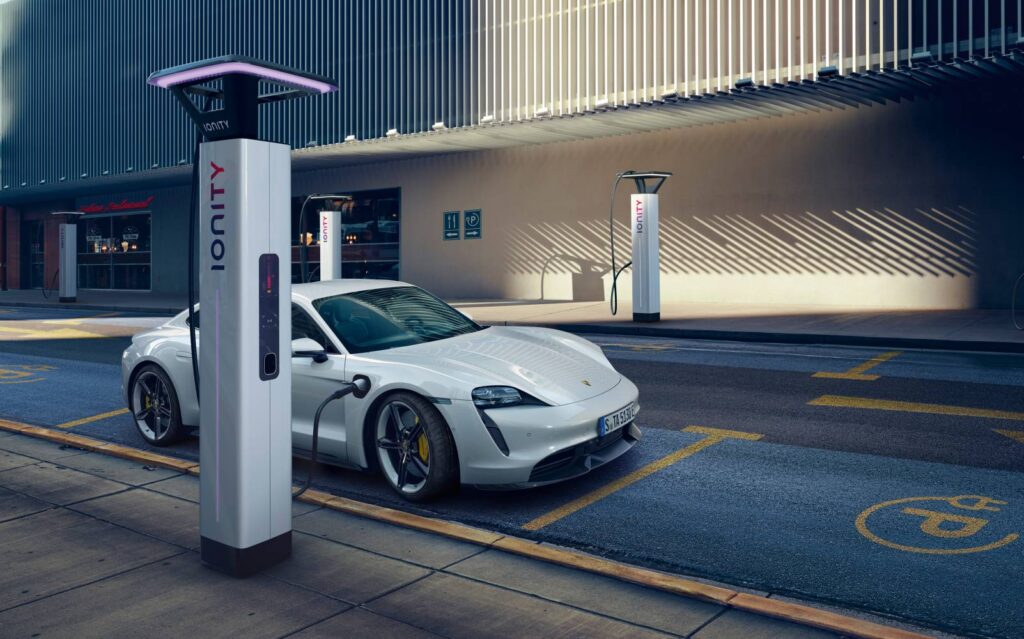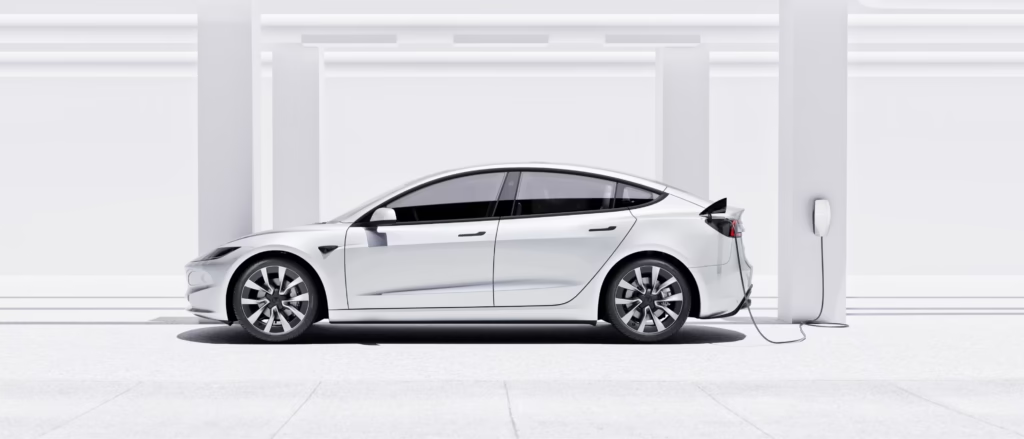The rise of “Electric Vehicles” (EVs) has resulted in a shift in the auto industry. From being a small player in the market alongside traditional gasoline cars, it is now becoming part of a more sustainable and technology-oriented industry. The economic ramifications as more car manufacturers switch to “Electric Vehicles” are clear – from manufacturing jobs to global supply chains and consumer trends, changes are visible.
This article examines how “Electric Vehicles” are impacting the growth of the auto industry, its effect on economic growth, employment, and competition amongst market players, and the outlook for the invigorating industry.
Table of Contents

1. The Growth of “Electric Vehicles” Market
Over the decade, the EV industry has shown a stellar performance with regard to growth. Countries around the globe are pushing for more “Electric Vehicles” through tax breaks, payments, and regulation for emission.
Key Market Trends:
✔ Global EV sales in 2024 surpassed 17 million with an increase of 25% from the previous year.
✔ China, Europe, and the U.S. remain the largest EV markets, China accounts for over 50% of global EV sales.
✔ Leading the shift toward EVs are automakers like Tesla, Volkswagen, and BYD.
This advancement is compelling traditional automakers to spend significantly in “Electric Vehicles” to remain relevant and transforms the economy of the auto industry.
2. Effect on Auto Production and Employment
The conversion from internal combustion engines (ICE) to “Electric Vehicles” is modifying how cars are envisioned, produced, and maintained.
Creation and Reduction of Jobs
🔹 Manufacturing Jobs – The use of EVs results in reduction of mechanical components when compared to gasoline powered vehicles, which results in loss of employment in traditional engine manufacturing.
🔹 Battery Production – The emergence of EV battery plants is giving rise to employment possibilities in areas that are adopting lithium-ion technology.
🔹 Software and Tech Jobs – The growing reliance on software and automation for “Electric Vehicles” results in increased demand for engineers and AI specialists.
The growth of the EV industry may lead to the disappearance of some traditional jobs, but new economic opportunities will emerge in technology, battery production, and clean energy industries.
3. Supply Chain Issues and New Opportunities
The disruption of traditional auto supply chains with the shift to “Electric Vehicles” presents new economic problems.
Key Changes in the Auto Supply Chain:
🔋 Battery Construction – The production of EVs heavily relies on the lithium, cobalt, and nickel which leads to a huge rush for mining and battery production.
⚡ Shortage of Semiconductors – The usage of sophisticated microprocessors in EVs deepen the gaps in the supply chains.
🌍 Volatility of International Trade – Nations pouring money into the making of EVs, such as China and the U.S, are emerging as dominant powers in the global car industry.
Automakers need to adapt their supply chains to meet the specific production requirements of Electric Vehicles, which will create new relationships and funding in raw material extraction and battery manufacturing plants.
4. Electric Vehicles Economic Advantages
The adoption of EVs leads to an economic advantage. but it also disrupts current markets.
1. Reduced Cost of Electricity Relative to Maintenance For Consumers
✔ Gasoline cars are expected to spend 50-70% less on maintenance when compared to EVs.
✔ An EV is cheaper to power compared to gasoline, easing the burden of long-term spending for motorists.
2. Increased Investments in Solar, Wind and Clean Energy Technologies
✔ Investment in clean renewable energy technologies is being driven by an increase in the adoption of EVs.
✔ New thyristor diode modules needed to support charging stations for EVs will accelerate new economic growth.
3. Lithium Ion Batteries Investment
✔ With the rise of electric vehicle battery market, there is expected to be $250 billion by 2030.
✔ Supported investments in advanced solid state batteries were sent to stimulate rapid development.
By cutting back on fossil fuel usage, Electric Vehicles are emerging as a means to help foster a sustainable economy.
5. Competition Among Automakers
The rise in demand for EVs has led to automakers racing to “control” the industry”.
Key Industry Players:
🚗 Tesla – Remains unrivaled in innovation and sales of EVs, but there is competition mounting.
🚗 Volkswagen – Spending billions on the manufacture of EVs to gain a foothold internationally.
🚗 BYD (China) – Dominating the Chinese market, being one of the most rapidly growing EV manufacturers.
🚗 Ford & GM – Adding more vehicles to their EV portfolio such as the Chevy Silverado EV and the Ford Mustang Mach-E.
As new players emerge, there is transformation of the economic outlook of the automotive sector which is overly optimistic for rapid innovation in electric vehicles.
6. Government Policies and Economic Regulations
Governments have started implementing policies that would lead to faster adoption of Electric Vehicles which will change the economics of the automobile industry.
Major Government Initiatives:
✔ The UK and EU’s ban on gasoline cars by 2035 – This shift will force automakers to begin units for EVs.
✔ U.S. Federal EV Incentives – Tax credits provided to consumers buying Electric Vehicles.
✔ China’s support for EVs – EV technology and battery manufacturing greatly receive government funding.
As governments strive for greener mobility, automakers need to shift strategically or risk losing profit margins.
7. Future Economic Perspective on “Electric Vehicles”
The outlook for “Electric Vehicles” for the next coming years remains both optimistic due to sustained growth and economic development.
Key Predictions for the Next Decade:
🔮 By 2035, EVs are expected to comprise 50% of car sales worldwide.
🔮 Prices of batteries are expected to decline by 40%, incresing EV usage.
🔮 Increased charging facilities will improve drivers’ anxiety issues over driving range.
🔮 More AI and autonomous EVs should be expected, deepening the transformation of the automotive industry.
Due to the advancements in technology and decreasing cost in production, “Electric Vehicles” will singlehandedly alter the fuuture economics of global transportation.
8. Conclusion: “Electric Vehicles” and Supremacy over tradition Cars
The shift towards “Electric Vehicles” is considered to be among the most important economic transformation of the automotive industry.
✔ The labor market is shifting, courtesy of AI and battery manufacturing creating a new job field.
✔ The old automotive supply chain systems are changing, which comes with advantages but also challenges.
✔ Government policies are favoring the shift, boosting the renewable energy and infrastructure economy.
✔ Stricter competition is encouraging automotive manufacturers to think of new ideas or else lose traction in the market.
There is no doubt that Electric Vehicles have an undeniable economic impact, and the industry will keep evolving with new business opportunities, advancements in technology, and changes in international trade brought in by expansion in adoption.
For now, how will car manufacturers respond to this fast-changing economic environment? 🚗⚡
What do you think?
Will Electric Vehicles take over gasoline-powered cars in the next ten years? We want to hear your opinions in the comments below! 😊

